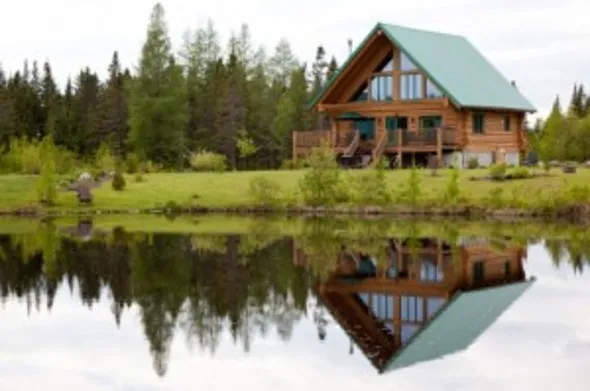Tired of showing up at that pricey hotel only to find that the sheets are dirty and your no-smoking room reeks of cigarette smoke? Why not purchase a second home, a vacation home that you can control? When you hit the road for family vacations, you won’t have to worry about any unpleasant surprises. And with the price tags of houses across the country at affordable levels, buying a vacation home makes financial sense. Right?
Find out now: Is it better to buy or rent?
Not always. There are hidden costs of second homes that could bump even the most affordable vacation homes out of your budget. Your job as a smart consumer is to be aware of these costs.
A Growing Market
If you are interested in purchasing a second home, you’re not alone. According to the National Association of Realtors’ 2012 Investment and Vacation Home Buyers Survey, which tracks home sales made in 2011, the sale of vacation homes rose 7% last year when compared to 2010.
Overall, buyers purchased 502,000 vacation homes in 2011, up from 469,000 one year earlier. And these homes cost buyers less. According to the realtors association, the median vacation-home sales price stood at $121,300 in 2011, down 19.1% from a median price of $150,000 in 2010.
Extra Costs
That $121,3000 figure sounds good, doesn’t it? But don’t be fooled. There are more costs involved in owning a second home.
Consider maintenance. If you buy a second-home condo, you’ll have to pay a maintenance fee for lawn-mowing, garbage pickup and repairs. If you buy a second home that’s not a condo, you’ll have to be disciplined enough to set aside money for the services of such pros as gardeners, painters, handymen and snow-shovelers. You might be blindsided by exactly how much it costs to hire a lawn-mowing service each year (think hundreds of dollars).
Someone, though, has to do that maintenance. And if you’re not living at your vacation home most of the year, it won’t be you.
Then there’s the matter of security. Reports show more than 5,000 vacation homes were “violently victimized” from 2004 through 2008. An investment in a home security system might keep your home safe. It can be costly, but if you’re not around most of the year to watch over your home, a security system might make financial sense.
Which brings us to homeowners insurance. Can you afford to replace your second home’s furnishings if they’re destroyed in a fire or other natural disaster? If not, you’ll have to pay for homeowners insurance. Insurance costs will vary, but you can expect to pay about $70 a month.
Taxes
You might decide to rent out your second home for part of the year to cover some of the costs of owning it. Be careful, though, as doing so could trigger some unpleasant tax surprises.
If you rent out your second home more than 14 days a year, the Internal Revenue Service will consider you a landlord. You’ll then have to declare your rental income at income-tax time, something that will cause you to pay higher taxes (though as a landlord, you’ll also be able to deduct certain expenses associated with owning a home).
You might also have to hire a professional property management company to maintain your second home. Renters want to be treated well, and they don’t want to deal with leaky faucets, unkempt front lawns or dirty carpets. And, yes, while property management companies charge varying fees depending on where your second home is located and how large it is, you can bet that these fees are almost always rather costly.
The bottom line? If you want to purchase a second home, consider doing it for the emotional reason: providing your family with a place to gather during long summers. Any financial benefits might not be quite as great you would have hoped.
Tips for Buying a Second Home
- Calculate all of the costs involved before you buy. In addition to a down payment and mortgage payments, you’ll also be responsible for taxes, insurance and maintenance cost. SmartAsset’s property taxes calculator can give you a sense o f the average cost of property taxes in the potential location of your second home.
- Talk to a financial advisor about how buying a second home will factor into your larger financial plan. You want to ensure you can purchase a home without sacrificing your other financial goals. A matching tool like SmartAsset’s SmartAdvisor can help you find a person to work with to meet your needs. First you’ll answer a series of questions about your situation and goals. Then the program will narrow down your options from thousands of advisors to up to three fiduciaries who suit your needs. You can then read their profiles to learn more about them, interview them on the phone or in person and choose who to work with in the future. This allows you to find a good fit while the program does much of the hard work for you.
